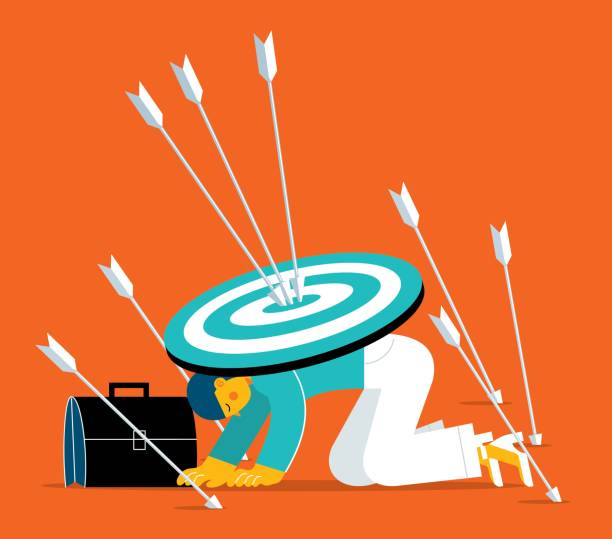
How to defend against false accusations at work
False accusations at work can be deeply distressing and damaging to an individual’s personal and professional life. These accusations can arise suddenly, often anonymously, and have serious consequences. However, it is important to remember that if you are falsely accused at work, you still have rights. And there are key things you can do to ensure you defend yourself and clear your name.
Australian workplace laws are designed to protect your rights and ensure that workplace investigations are conducted fairly. Understanding these rights is crucial, to ensure that your employer does not deny you the chance to defend yourself. In this article, we outline the critical steps you should take if you are facing false accusations and work. We also outline the key rights that your employer must uphold during workplace investigations.
If you are facing false accusations at work, you are not alone. Often, victims of false accusations are not afforded the concern and sympathy that they are due. An accusation alone, without being proved, is typically enough to destroy your reputation and career prospects. And they can take a terrible emotional toll, as the victim in the below story experienced.
University employee falsely accuses coworker of rape because she was “angry” with him
A story involving false accusations at work made international headlines in March 2023. The story involved a 25-year-old Stanford University employee who falsely accused an African American coworker of rape. And the reason she did so is because she was “angry” with him. The employee, Jennifer Gries, was subsequently arrested and charged with two felony counts of perjury. She was also charged with two misdemeanour counts of knowingly lying to law enforcement.
Ms Gries’s false accusations of her coworker involved two fabricated incidents. On 9 August 2022 she made a report to Santa Clara County forensic examiners that she had been sexually assaulted by a man in a Stanford University garage. She described the man as being six foot tall, African American and aged in his twenties. Ms Gries claimed that the attacker had come up to her as she was walking to her car. She said that he took her to a toilet and raped her.

Employee invents second incident to falsely accuse coworker
Then almost two months later on 7 October 2022, Ms Gries reported that she had been sexually assaulted yet again. This time, she told Stanford University hospital staff that the same man had approached her while she was working in a front office at the university. Ms Gries stated that the man took her to a basement storage closet and raped her. After both incidents, Ms Gries refused to speak with police. A detective attempted to interview her, but she declined to provide any more details about the rapes. The only thing she told the detective was that she knew her attacker.
Both these incidents deeply disturbed staff and students at Stanford University. Campus-wide safety alerts were issued and hundreds of students protested. According to Stanford University, the investigation and extra security necessitated by Ms Gries false accusations cost over $300,000. Investigators revealed Ms Gries was surprised by the reaction her false accusation had caused. She had also inquired to investigators about how the rapes would be investigated. She also asked about how her rape forensic kit would be utilised and if there were witnesses to both incidents.
“I’m coming up with a plan:” Detectives discover that false accusations were revenge plot against coworker
Investigators uncovered text message Ms Gries had sent to a friend where she described her intention to falsely accuse her coworker. “I need to start standing up for myself…. I am so annoyed…. I’m coming up with a plan. That way he’s s— his pants for multiple days,” read the text message.
It was later revealed that Ms Gries falsely accused her coworker so as to get revenge on him. Investigators discovered that in March 2022, the accused coworker had been the subject of a sexual assault complaint initiated by Ms Gries. An investigation cleared the man of any wrongdoing and Ms Gries was assigned to work in another area.
“I don’t feel human:” False accusations at work traumatises coworker
When detectives interviewed Ms Gries in November 2022, they asked if the man she had previously accused could be ruled out. They noticed that she became notably nervous when asked this question. Then in January 2023, Ms Gries came clean with detectives, telling them that she had falsely accused her coworker of the two rapes.
The coworker who was falsely accused at work told investigators that he was scarred by the whole ordeal. It was made even worse as at the time he was caring for his sick mother, who later passed away. He told investigators: “This is disgusting. I don’t feel human. I don’t feel human at all.”

False accusations at work: How to handle a workplace investigation
If you have been falsely accused at work, your employer may conduct a workplace investigation into the accusation. The purpose of a workplace investigation is to gather relevant information, interview involved parties and witnesses. Also, to review evidence and determine if the accusations are substantiated or not.
Workplace investigations in Australia are governed by a framework of laws aimed at ensuring fairness and transparency. The key legislation in this area includes the Fair Work Act 2009 and the Fair Work Regulations 2009. Under these laws, employers have a responsibility to conduct investigations that are impartial, timely and respectful of employees’ rights.
If you are falsely accused, you have the right to procedural fairness
One crucial aspect of workplace investigations is procedural fairness, also known as natural justice. This principle requires that all parties involved in an investigation be treated fairly. And that they are given an opportunity to present their side of the story and respond to accusations.
This means that, as an employee facing an investigation for false accusations, you have certain rights that must be upheld throughout the process. Not all employers abide by the laws regarding procedural fairness, however. So it is critical that you understand the rights you have to ensure that your false accusation does not result in an unfair workplace investigation.

Six critical things to do when facing false accusations
Stay calm and composed
It is natural to feel upset or defensive when falsely accused. but try to remain calm and composed throughout the process. Emotional reactions can sometimes be misinterpreted. Remaining composed will help you better understand the accusations and your employer’s course of action. Your employer may ask you to continue working as usual. Or you might be suspended with pay during the investigation process.
Request evidence
It is critical request evidence supporting the accusation and any additional details not yet provided. Ask for specifics such as the date, time, individuals involved and relevant company policies. Evidence can include text messages, emails or CCTV footage. Remember that context matters, and what seems like misconduct may be a misunderstanding that can be clarified. It is also important that you gather any evidence that supports your case. Make sure to present it during the investigation.
Cooperate with the investigation
Regardless of the nature of the accusation or how it is treated, it is crucial to cooperate and maintain professionalism throughout the process. Even if you are innocent, avoiding any appearance of resistance or unwillingness to clear your name is important. Cooperation can positively impact your relationship with your employer once the investigation concludes. While non-cooperation can reflect negatively on you.
Document everything
Throughout the process, it’s wise to keep a record of all interactions and events related to the investigation. This record can serve as a reference in case of future issues or as evidence if the process is unfair. If you believe any part of the workplace investigation is unfair, bring your concerns to your employer’s attention.

Employee rights when facing false accusations at work
The Fair Work Act 2009 entitle Australian workers to a number of rights. These are all under the banner of the right to procedural fairness. It is important to remember these rights to ensure your employer upholds them during your workplace investigation. If they violate any of these rights, you may have a good unfair dismissal claim to make with the Fair Work Commission.
Right to be informed
You have the right to be informed about the investigation. This includes knowing about the nature of the allegations against you and the purpose of the investigation. And any updates or developments related to the accusations and the workplace investigation. This must be done in a timely manner and not drawn out. Any information critical related to your false accusation and the investigation must not be presented in a way that is hard to understand.
Right to a fair process
You must be given a reasonable opportunity to respond to the false accusations and present your side of the story. This may include providing witness statements or evidence that might reveal your accusation to be false. You should not be rushed by your employer to do this. They must give you reasonable time to respond to your false accusation. The right to a fair process also obligates your employer to fully consider your response to the false accusation. That is, prior to the workplace investigation concluding and any dismissal or disciplinary decision.
A fair process also means that the person leading the workplace investigation does not have any conflicts of interest. For instance, if a key witness is undertaking the investigation, this would be unlawful. You must also be provided with the outcome of your workplace investigation. And your employer can not decide to dismiss or discipline you prior to the workplace investigation concluding.
Right to confidentiality
Your privacy should be respected throughout the investigation. Information related to the investigation should only be disclosed on a need-to-know basis. It should only be discussed with HR, involved employees, yourself and legal counsel if necessary.
Right to evidence
You have the right to access and review any evidence or documents relevant to the investigation that pertain to your case. This can include any witness testimonies, emails, text messages or CCTV footage. This is critical so that you fully understand the nature of the false accusation and can respond to it in the best way possible.
Right to a support person
You are entitled to have a support person to be there when you are engaged in any interviews or meetings related to the workplace investigation. This person can be a colleague, union representative or lawyer.

What action can you take if you are falsely accused?
Even when false accusations are proven wrong, the damage to your reputation may have already occurred. In such cases, you might consider pursuing taking legal action for defamation of character, especially if your standing and character were negatively affected.
Filing a claim with the Fair Work Commission is another option. You can either file a claim under the General Protections (for adverse actions not involving dismissal). Or an unfair dismissal claim (if you were dismissed based on false accusations). These options can provide remedies such as compensation, apologies or changing your dismissal to resignation.
Fair Work Commission cases involving false accusations at work
The Fair Work Commission has previously ruled on several cases involving false accusations. These decisions show how the Fair Work Commission and the courts regard false accusations when they are brought to light as such by evidence. Here, we detail some of these unfair dismissal and adverse action cases.
Government whistleblower dismissed for making false accusations at work
The unfair dismissal case Nandana Gunawardana v Commonwealth of Australia involved a Services Australia worker who claimed he was dismissed for his vocal criticisms of the department’s “robo-debt” program. However, the Fair Work Commission and his employer felt it was in fact his false accusations that got him dismissed.
Nandana Gunawardana’s tenure at Services Australia spanned from 2002 until his abrupt departure in July 2020. During this time, he emerged as a vocal critic of the “robo-debt” program. This was a controversial initiative that erroneously accused countless welfare recipients of owing money to the federal government. Mr Gunawardana’s His concerns echoed far and wide, but as it turns out, this would not be the reason for his eventual dismissal.
Mr Gunawardana’s objections began as early as 2018 when he raised questions about the legality of imposing a 10 per cent recovery fee on robo-debt victims. He even engaged directly with senior staff at Services Australia in an attempt to address these concerns. By May of the following year, mounting pressure forced the government to unwind the robo-debt program.

Worker made false accusations of bulling
However, the Fair Work Commission determined that Mr Gunawardana’s dismissal had no direct connection to his robo-debt activism. Instead, it was rooted in an internal investigation from 2015, predating his robo-debt criticisms. These found that he had failed to display “respect and courtesy” towards his colleagues.
An investigation conducted by a law firm found that Mr Gunawardana had engaged in “inappropriate behaviour.” This included false accusations of bullying and harassment against his team leader and colleagues. The Fair Work Commission ruled that Services Australia fairly dismissed Mr Gunawardana due to his false accusations. It dismissed the notion that his dismissal was part of a conspiracy related to his robo-debt activism and found no evidence linking his dismissal to alleged improper motives.
Employee forced to pay $5.8M for false accusations at work
The unfair dismissal case Dye v Commonwealth Securities Limited case [2012] demonstrated the consequences of making false accusations at work. The case involved Commonwealth Bank employee Vivienne Dye. In her two and a half years at the company she spent seven months on sick leave due to mental health reasons. She was later made redundant by the Commonwealth Bank.
Ms Dye subsequently made an adverse action complaint with the Australian Human Rights and Equal Opportunity Commission. She alleged that while at the Commonwealth Bank she had suffered sexual harassment, gender-based discrimination, disability discrimination. Also, victimisation due to her complaints about sexual harassment. These allegations were directed at two senior managers at the Commonwealth Bank. Shockingly, these would later be revealed as false accusations.
The national press soon caught wind of the accusations. The Age and the Sydney Morning Herald published articles about the managers. And the Commonwealth Bank publicly responded by stating that the accusations were false. One of the managers ended up suing News Limited for defamation.
“Venomous desire for revenge:” Court reveals false accusations
When Ms Dye’s adverse action case made it to Federal Court, it was revealed that she had made false accusations. The court found that both Commonwealth Bank managers were “blameless.” It stated that Ms Dye’s false accusations were not only “without substance” but also, in some cases, “completely fabricated.” The court uncovered Ms Dye’s “knowingly false” accusations, pointing to her “venomous desire for revenge” as the driving force behind her actions.
Her fabrications were described as akin to a “novel,” riddled with baffling omissions. The court went further to emphasize that her credibility lay in ruins, making her false accusations a dark stain on her own character. In fact, the court found that it was Ms Dye herself who had made romantic advances toward one of the managers, hoping for a “close and intimate” relationship. However, when her advances were unreciprocated, Ms Dye’s desire for revenge took hold. Her chilling words, “I’m going to get that c***, and I’m going to f**king destroy him and his family,” echoed in the courtroom.
“The allegations against them were false,” Federal Court Judge Buchanan declared. “They should not have been made. They should not have been pursued.”

False accusations see employee ordered to pay costs
In the end, the gavel fell heavily on Ms Dye. The court ordered her to pay the Commonwealth Bank’s exorbitant legal costs, emphasising the gravity of her actions. These costs were to be paid on an indemnity basis, allowing the bank to recover the entirety of its legal expenses, a rare outcome in such cases. The costs amounted to a whopping $5.85 million. However, Ms Dye’s financial situation appeared dire. Her barrister admitted she possessed only a mobile phone and a computer as assets, casting a shadow of uncertainty over her ability to fulfill the court’s order.
Have you faced false accusations at work?
If you have faced false accusations at work, your employer may violate your rights. This could be that they deny you procedural fairness. Or the false accusations result in you being dismissed or your job being altered to your detriment. Working in a toxic workplace culture, or want to know casual employee rights and want to know your rights, call us now.
If you find yourself in such a situation, don’t hesitate to contact A Whole New Approach for the guidance and support you require. Read our recent cases. We have aided more than 16,000 employees in taking action through the Fair Work Commission.Reach out to A Whole New Approach today at 1800 333 666 for the assistance and support you
Articles that are compulsary reading
Deceptive and misleading conduct
Disciplinary meeting what happens when your employer calls you in






